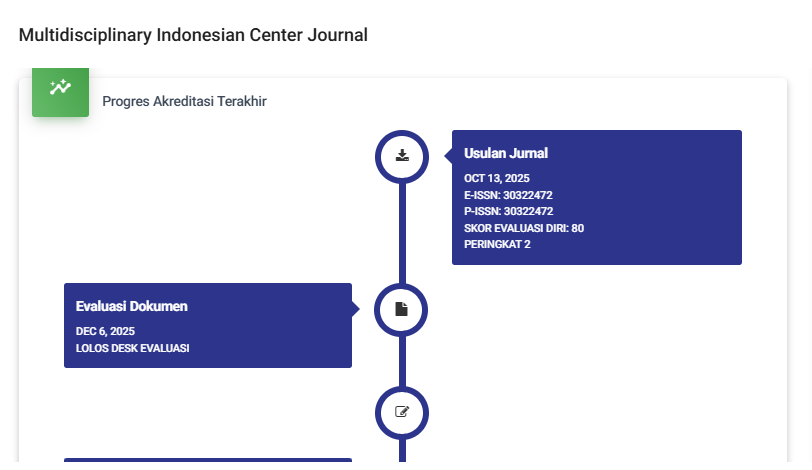THE ROLE OF VIRTUAL LEADERSHIP AND COLLABORATION TOOLS IN ENHANCING REMOTE TEAM PRODUCTIVITY IN SOFTWARE HOUSE INDUSTRY
DOI:
https://doi.org/10.62567/micjo.v2i2.517Keywords:
Virtual leadership, Collaboration tools, Remote team productivity, Software house industry, Digital workplaceAbstract
This study explores the critical role of virtual leadership and collaboration tools in enhancing remote team productivity within the software house industry. As organizations increasingly adopt remote work models, effective virtual leadership and the use of digital collaboration platforms have become essential for maintaining team cohesion and productivity. Through a comprehensive analysis of current practices and emerging technologies, this research aims to identify key strategies for optimizing remote team performance. The study employs a mixed-methods approach, combining quantitative surveys with qualitative interviews of software industry professionals. Findings reveal that successful virtual leadership relies on a combination of clear communication, trust-building, and the strategic use of digital tools. Furthermore, the research highlights the importance of selecting appropriate collaboration platforms that align with team needs and workflow processes. This study contributes to the growing body of literature on remote work management and provides practical insights for software house leaders seeking to enhance their virtual team's productivity.
Downloads
References
Asmi, M. (2024). Study on Leveraging Digital Tools for Enhancing Employee engagement in remote work settings. International Journal of Scientific Research in Engineering and Management, , 08(06), 1–5. https://doi.org/10.55041/ijsrem35680
Amal, E. A. (2024). Impact of online work communication strategies on employee productivity. International Journal of Research and Innovation in Social Science, VIII(IIIS), 5800–5810. https://doi.org/10.47772/ijriss.2024.803435s
Aufegger, L., & Elliott-Deflo, N. (2022). Virtual reality and productivity in knowledge workers. Frontiers in Virtual Reality, 3. https://doi.org/10.3389/frvir.2022.890700
Dahabi, N. Z. M. a. A., Algazo, N. F. A., Hajjaj, N. R. Y., & Abukhait, N. R. O. (2024). Remote work and human resource management: Challenges and solutions. World Journal of Advanced Research and Reviews, 24(1), 1204–1208.
https://doi.org/10.30574/wjarr.2024.24.1.3126
Depoo, L., & Hermida, A. (2024). The role and factors impacting virtual human resource management capacity to build remote teams’ effectiveness and retention. Serbian Journal of Management, 19(1), 187–205. https://doi.org/10.5937/sjm19-46329
F, L. X., & Porwal, A. (2024). Impact of hybrid work model on productivity. Shanlax International Journal of Management, 11(S1-Mar), 211–214.
https://doi.org/10.34293/management.v11is1-mar.8095
Gupta, M. (2024). AI-Powered Conflict Resolution: Transforming virtual team dynamics in Real-Time. International Journal for Multidisciplinary Research, 6(6).
https://doi.org/10.36948/ijfmr.2024.v06i06.31182
Ibeh, F., Oyekunle, D., & Boohene, D. (2024). Exploring Effective Methods to Boost Virtual Workers’ Morale for Improved Project Performance. International Journal of Professional Business Review, 9(3), e04335.
https://doi.org/10.26668/businessreview/2024.v9i3.4335
Mayer, C., Sivatheerthan, T., Mütze-Niewöhner, S., & Nitsch, V. (2023). Sharing leadership behaviors in virtual teams: effects of shared leadership behaviors on team member satisfaction and productivity. Team Performance Management, 29(1/2), 90–112. https://doi.org/10.1108/tpm-07-2022-0054
Nuratri, B., Achmad, A. Z., & Saputra, R. (2022). Leadership in the Age of Remote Work: Best Practices for Managing Virtual teams. Jurnal Office, 8(2), 379. https://doi.org/10.26858/jo.v8i2.45362
Pringgabayu, D., Waruwu, F., Sobandi, A., & Disman, D. (2023). The Art of Virtual Leadership : Insights from a Literature Review. Jurnal Ilmiah Manajemen Ekonomi & Akuntansi (MEA), 7(2), 1799–1810. https://doi.org/10.31955/mea.v7i2.3273
Rajan, N., Virk, N. S. S., Kaur, N. L., & Kaur, N. D. R. (2024). Development and implementation of a “Virtual Team Coordination Application” for enhanced remote work efficiency. International Journal of Scientific Research in Computer Science Engineering and Information Technology, 10(6), 302–307. https://doi.org/10.32628/cseit241051065
Wahl, L., & Kitchel, A. (2016). Internet based collaboration tools. International Journal of e-Collaboration, 12(1), 27–43. https://doi.org/10.4018/ijec.2016010103
Downloads
Published
How to Cite
Issue
Section
License
Copyright (c) 2025 Aghnia Wulandari, Yonghwa Han, Edi Sugiono

This work is licensed under a Creative Commons Attribution-ShareAlike 4.0 International License.



























